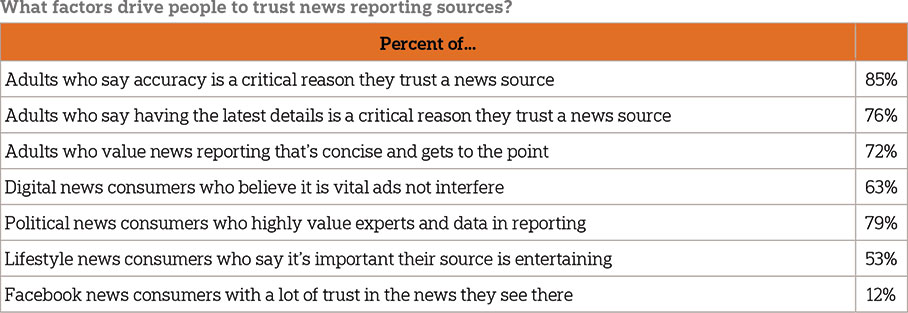
For more than a generation, research has tried to identify the qualities that lead people to trust news. The work has concluded that in general people want journalism to be fair, balanced, accurate, and complete. It can be unclear, however, what these broad factors mean or how news organizations can achieve them.
This new comprehensive study shows that trust and reliability in news can be broken down into several specific factors. The study also finds that in the digital age, several new factors largely unexamined before — such as the intrusiveness of ads and load times — are critical in determining whether consumers consider a source competent and worthy of trust.
The specific factors that lead people to trust and rely on a news source also vary by topic. And in social media, consumers are fairly skeptical of content and want cues of trustworthiness such as clear identification of the original reporting source.
Finally, the study sheds new light on why trust matters. People who put a higher premium on trust-related factors are more engaged with news, are more likely to pay for it, install news apps, or share and promote news with their friends.

This study extends previous research from the Media Insight Project, which has explored the news and information habits of Americans and investigated Millennials’ news behaviors and online activities. For this work, researchers used a combination of different methods, including ethnography, focus groups, and a nationally representative survey of 2,014 adults.




